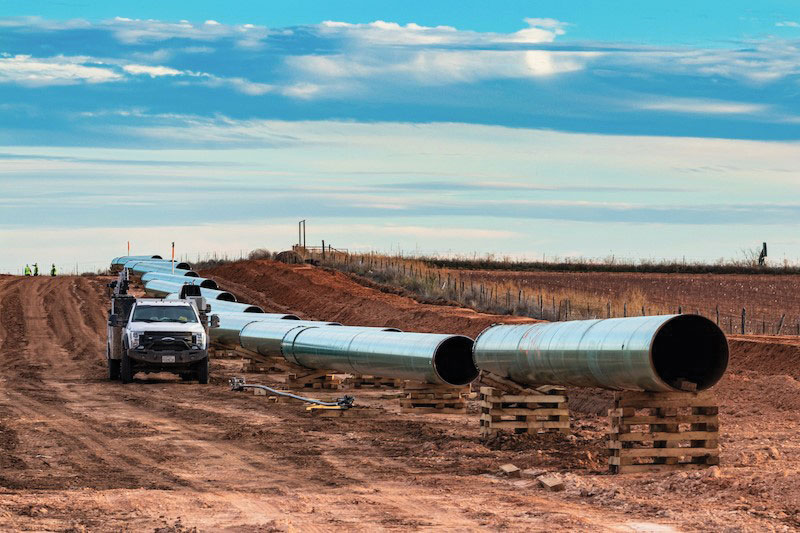INGAA Releases Key Safety Initiative Work Products
The Interstate Natural Gas Association of America (INGAA) and its member companies have released their “Integrity Management – Continuous Improvement (IMCI) 2.0” program work products.
The IMCI program is a series of voluntary initiatives to bolster the industry’s safety efforts.
Through the program, INGAA members reaffirm their commitment to pipeline safety, incorporating the latest advanced technologies and processes to ensure the safe, reliable, and clean transport and delivery of natural gas to families and businesses across the country.
In 2021 , the INGAA membership launched IMCI 2.0: an update to the original program by providing a foundation for members to safely support the energy transition as we evolve to a net-zero greenhouse gas emissions economy.
Today’s announcement showcases the completion of several initiatives announced as part of the program, including five new work products in support of the IMCI goals . These efforts further strengthen gas transmission pipeline safety and complement the industry’s goals of zero pipeline incidents and work towards net-zero greenhouse gas emissions.
“Safety is, and has always been, the top priority for the INGAA membership – including the safety of our employees, contractors, communities and the environment,” said Amy Andryszak, president & CEO of INGAA and the INGAA Foundation. “The IMCI 2.0 program and the industry’s work in support of it as reflected by these products demonstrates both our focus on the integrity of our systems and our goal of a net-zero greenhouse gas emission future.”
IMCI 2.0 Work Products:
Transportation and Storage of Renewable Natural Gas –
A detailed guidance document for safely transporting various types of renewable natural gas demonstrating that RNG is suitable for the pipeline grid, given proper conditioning.
Managing Emissions from Integrity and Maintenance Work – Managing Methane Emissions from Integrity Management Work on Natural Gas Transmission & Storage Assets
A white paper providing best practices for reducing methane emissions from pipeline integrity and maintenance work within the natural gas transmission and storage industry. This information encourages operating companies to consider how these best practices and technologies can help them better understand and reduce their operational emissions and achieve their environmental goals.
Development of an American National Standards Institute Standards for Managing Geohazards – Framework for Geohazard Management
A high-level framework document to be used as an accepted practice for managing the potential effects of geohazards. This report will also be used to assist API RP 1187: Pipeline Integrity Management of Landslide Hazards.
Integration of Electro-Magnetic Acoustic Transducer (EMAT) In-Line Inspection (ILI) into Standards – Technical Guidance: Integrity management for Stress Corrosion Cracking Using Electromagnetic Acoustic Transducer (EMAT) In-Line Inspection
A practical guide to provide process and knowledge transfer to augment ILI and crack management procedures with a focus on the use of EMAT ILI systems to assess the threat of stress corrosion cracking.
Regulatory Acceptance of Non-Traditional Pipe – Study to Evaluate the Regulatory Acceptance of Non-Traditional Pipe
A report focusing on the various conventional and innovative solutions required to address future transportation challenges associated with non-traditional pipe (NTP) technologies. The report evaluates various options the pipeline industry has associated with NTP materials, along with sensing and monitoring technologies essential for their success.
In addition to those work products, INGAA completed the remaining goals of the IMCI 2.0 effort through the following initiatives:
- Regulator Stakeholder Engagement – INGAA maintained its commitment to regular stakeholder engagement by meeting with various organizations involved in advancing safety within the pipeline industry, such as the Pipeline and Hazardous Materials Safety Administration, the National Association of Regulatory Utility Commissioners, the National Association of Pipeline Safety Representatives, the Pipeline Safety Trust and the Environmental Defense Fund. INGAA also recently updated its website to improve information sharing.
- Transportation and Storage of Hydrogen – INGAA completed a compendium of research of all available hydrogen pipeline safety research so that its members could have the most up-to-date information to ensure future hydrogen blends are safely transported.
- Rupture Detection and Response – INGAA members committed to developing a risk-based valve response and automation plan. Additionally, members met to consider the latest automation and rupture detection technologies.
“The IMCI program is a cornerstone initiative for our members and dictates proactive work to advance the standard of care in the industry,” said Ben Kochman, director of Pipeline Safety Policy at INGAA. “I am proud of the tremendous work and collaboration that went into this most recent update and look forward to continuing to advance the natural gas transmission industry’s safety efforts.”
For more information, visit www.ingaa.org.
Related News
Related News

- Keystone Oil Pipeline Resumes Operations After Temporary Shutdown
- Freeport LNG Plant Runs Near Zero Consumption for Fifth Day
- Biden Administration Buys Oil for Emergency Reserve Above Target Price
- Mexico Seizes Air Liquide's Hydrogen Plant at Pemex Refinery
- Enbridge to Invest $500 Million in Pipeline Assets, Including Expansion of 850-Mile Gray Oak Pipeline





Comments